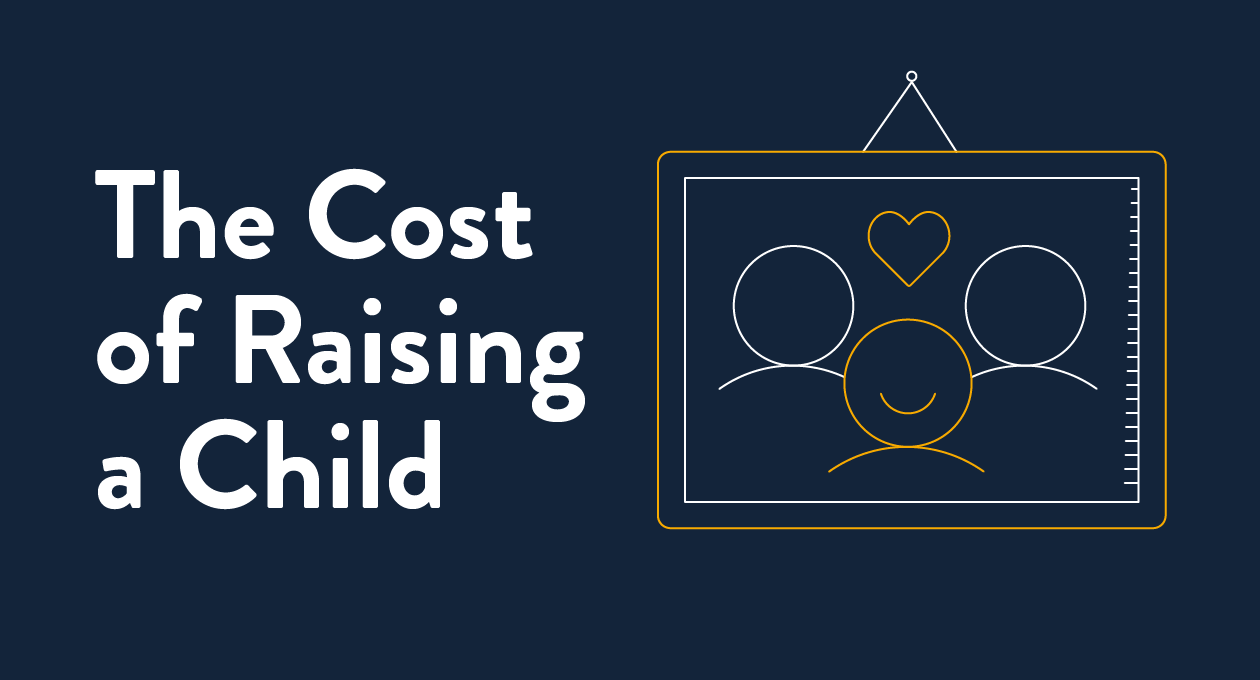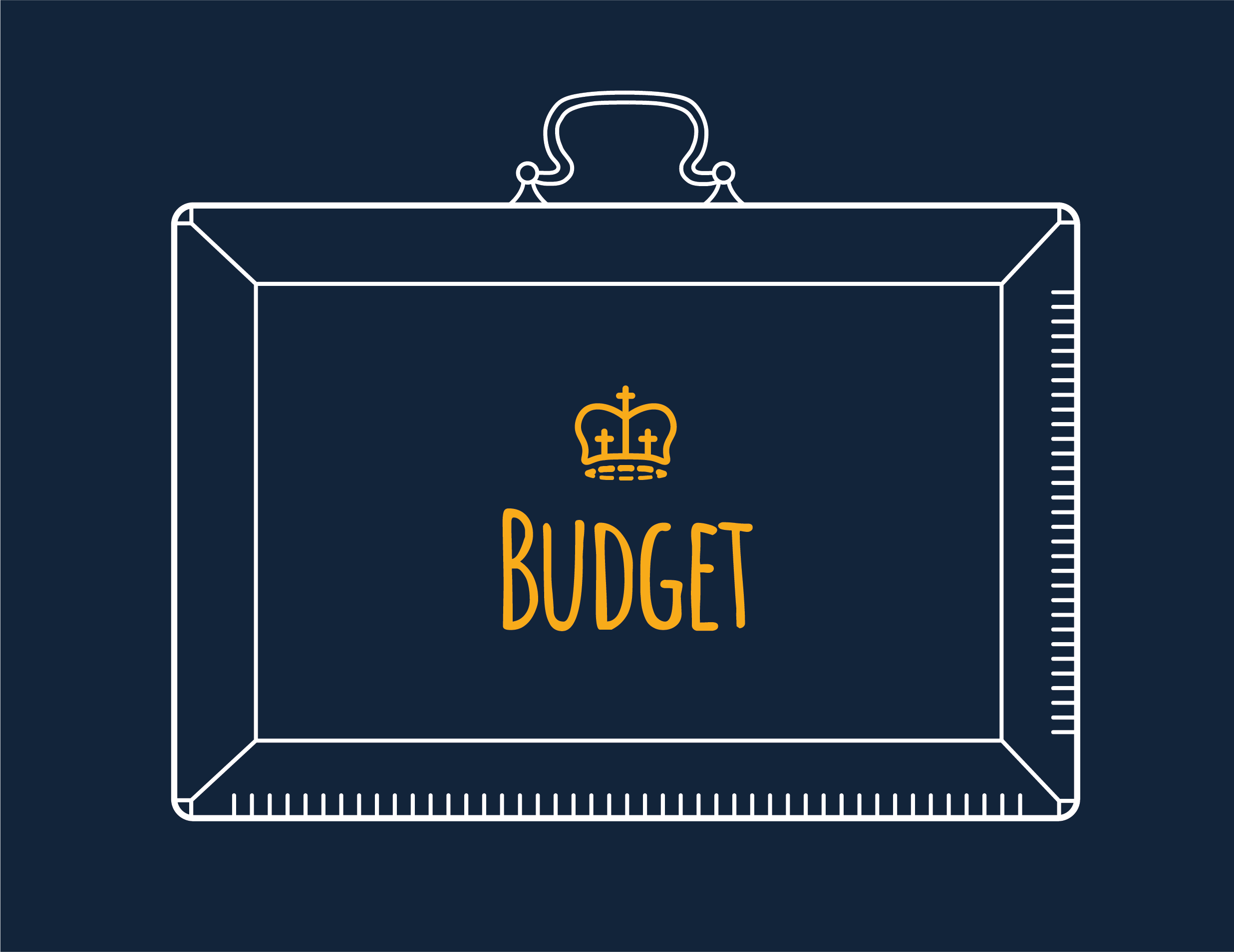
How much does it cost to raise a child up until the age of 18?
From nursery fees and nappies to after-school clubs and swimming lessons, the cost of raising a child can be endless. With the current economic climate impacting almost every area of our daily lives, it’s important that those who are looking to start, or grow, their family are aware of just how much money they might need to bring up a child.
We’ve analysed the cost of raising a child from birth to the age of 18, looking at household necessities such as food and transportation, as well as spending on extras such as pocket money and recreational activities. We used these metrics to determine the weekly and yearly cost of a child on average, as well as find out the total cost of raising a child to adulthood from when they were born to the age of 18 (please note that these figures are based on average figures and may vary due to inflation).
Acknowledging that all parents have different lifestyles, we have also determined the cost of raising a child based on parents paying for part-time childcare, as well as the cost to raise a child based on parents paying for full-time childcare.
The average cost of raising a child in the UK is £190,124
Taking into account the many different factors associated with raising a child, our research has revealed that the total average cost of bringing up a child in the UK, from birth to age 18, is £190,124.*
This figure takes into account household spending on necessities such as food, transportation and clothing, as well as spending on added extras such as pocket money and recreational activities, however, these figures may fluctuate slightly due to inflation changes.
The table below shows the weekly, yearly and total costs for each item for one child over the course of their childhood:
| Age | Item | Weekly cost per child | Yearly cost per child | Number of years | Total cost per child** |
|---|---|---|---|---|---|
| 0-2 | Cost of nappies | £7.94 | £412.65 | 2 | £825.30 |
| 0-4 | Cost of childcare/nursery (full-time) | £213.99 (average for children aged 0-4) | £11,127.42 (average for children aged 0-4) | 4 | £44,509.66 (total for 0-4 year olds altogether) |
| 0-4 | Cost of childcare/nursery (part-time) | £110.59 (average for children aged 0-4) | £5,750.62 (average for children aged 0-4) | 4 | £23,002.46 (total for 0-4 year olds altogether) |
| 4-12 | Cost of after school club (full- time) | £66.52 | £2,594.28 | 8 | £20,754.24 |
| 4-12 | Cost of after school club (part-time) | £39.91 | £1,556.57 | 8 | £12,452.54 |
| 4-12 | Price of holiday childcare (full-time) | £147.70 | £1,920.10 | 8 | £15,360.80 |
| 4-12 | Price of holiday childcare (part-time) | £147.70 | £960.05 | 8 | £7,680.40 |
| 0-18 | Food and non-alcoholic beverages | £25.92 | £1,347.67 | 18 | £24,258 |
| 0-18 | Housing, fuel and power | £36.54 | £1,900.17 | 18 | £34,203 |
| 0-18 | Transport | £31 | £1,612 | 18 | £29,016 |
| 0-18 | Recreation and culture | £23.38 | £1,215.50 | 18 | £21,879 |
| 0-18 | Clothing and footwear | £7.33 | £381.33 | 18 | £6,864 |
| 4-17 | Pocket money | £7.11 (average across 14 years) | £369.53 (average across 14 years) | 14 | £5,173.48 |
| 4-11 | School uniform (Primary) | £6.06 | £315.00 | 8 | £2,520.00 |
| 12-16 | School uniform (Secondary) | £6.48 | £337.00 | 5 | £1,685.00 |
| 4-18 | Swimming lessons | £14 | £728 | 2.5 | £1,820 |
*This figure is the average estimated cost for parents bringing up a child for both part-time workers and full-time workers. The difference between these two costs is the amount spent on childcare throughout the child’s life. This is explored further within this article.
**Please note that total cost is reflective of data from current sources and parents will need to make provisions for rising costs.
Spending on household necessities could amount to £142,507* on average over the course of 18 years
Our study has also taken into account various essential living costs associated with raising a child, assuming that a parent is covering these costs from when the child is born until they turn 18. This includes spending on food and drink, housing, transport, clothing, school uniform, nappies and childcare.
Starting from their very early years, the cost of children can really add up. Nappies, for instance, cost around £8 per week, which equates to around £413 per year, or a total of £825 if you take into consideration that most children wear them until they are around two years old.
Meanwhile, the data also analysed the cost of food, drink, housing, transport, clothing and fuel/power per family household in the UK and found out the average cost per person. Food and drink for each child costs around £26 per week, which adds up to £24,258 in total throughout their childhood.
Transport costs, whether that be covering train, bus, or petrol fees, is around £31 per week, or £29,016 in total. Clothing and footwear average £7 per week and £6,864 overall, while school uniforms are almost double that at £13 per week, which adds up to £3,890 over the course of the child’s school life.
*This figure is an average for household necessities and childcare for both part-time and full-time parents. The difference between these two costs is the amount spent on childcare throughout the child’s life. This is explored further in the section below.
Full-time childcare costs could set parents back £80,625 from the ages of zero to 12
With many parents having varied lifestyles and requiring different amounts of childcare for their children, we’ve taken a look at how much it costs for both full-time and part-time working parents to raise a child.
Given that most children don’t start school until age four, many parents will also have to pay for some form of childcare if they plan to go back to work after having children. For parents who work full-time throughout their child’s early years, as well as throughout their school years up until the age of 12 (it’s advised that kids under the age of 12 are not left unsupervised), costs for nursery, after school care and childcare for during the school holiday may all need to come into consideration.
For full-time working parents, the cost of nursery and childcare for preschool age children (from birth up until four years old) for 50 hours a week could cost a total of £44,510. For children aged zero up until the age of two, childcare costs amount to £26,371 in total, declining slightly to £18,138 in total for children aged between two and four.
Once they start school, children whose parents work full-time may also need to go to an after-school club. This works out as £67 per week on average, or £2,594 per year when acknowledging the length of an average school term is 39 weeks.
Alongside this, childcare throughout the school holidays is around £148 per week, or £1,920 in total for the 13 weeks that children are off school throughout each year. Parents working full time may need the full 13 weeks of childcare each school year up until their child is 12 – meaning this could cost £15,361 per child in total.
The table below shows the weekly, yearly and total cost for full-time childcare for one child:
| Age | Item | Weekly cost per child | Yearly cost per child | Number of years | Total cost* |
|---|---|---|---|---|---|
| 0-1 | Full-time nursery/childcare (50 hours per week) | £253.57 | £13,185.64 | 1 | £13,185.64 |
| 1-2 | Full-time nursery/childcare (50 hours per week) | £253.57 | £13,185.64 | 1 | £13,185.64 |
| 2-3 | Full-time nursery/childcare (50 hours per week) | £248.95 | £12,945.14 | 1 | £12,945.14 |
| 3-4 | Full-time nursery/childcare (50 hours per week) | £99.87 | £5,193.24 | 1 | £5,193.24 |
| 4-12 | Cost of after school club (full-time) | £66.52 | £2,594.28 | 8 | £20,754.24 |
| 4-12 | Price of holiday childcare (full-time) | £147.70 | £1,920.10 | 8 | £15,360.80 |
*Please note that total cost is reflective of data from current sources and parents will need to make provisions for rising costs.
Meanwhile, childcare for part-time working parents could cost £43,135 from the ages of zero to 12
Many parents opt to work part-time when raising a child, especially during the earlier years. Doing this can help cut the costs of childcare which can take up a large proportion of a parent’s income or savings.
Our study shows that the average cost of part-time childcare (25 hours a week) for children aged zero to two, childcare could cost £13,682 in total, whilst childcare costs for two to four-year-olds could cost up to £9,321 in total.
Meanwhile, after-school clubs for school children during term time could be costing part-time working parents £1,557 a year, or £12,453 in total up until the age of 12. Part-time childcare during the summer holidays could be costing parents £960 a year, or £7,680 in total up until the age of 12.
The table below shows the weekly, yearly and total cost for part-time childcare for one child:
| Age | Item | Weekly cost per child | Yearly cost per child | Number of years | Total cost* |
|---|---|---|---|---|---|
| 0-1 | Part-time nursery/childcare (25 hours per week) | £131.56 | £6,840.86 | 1 | £6,840.86 |
| 1-2 | Part-time nursery/childcare (25 hours per week) | £131.56 | £6,840.86 | 1 | £6,840.86 |
| 2-3 | Part-time nursery/childcare (25 hours per week) | £127.86 | £6,648.72 | 1 | £6,648.72 |
| 3-4 | Part-time nursery/childcare (25 hours per week) | £51.39 | £2,672.02 | 1 | £2,672.02 |
| 4-12 | Cost of after school club (part-time) | £39.91 | £1,556.57 | 8 | £12,452.54 |
| 4-12 | Price of holiday childcare (part-time) | £147.70 | £960.05 | 8 | £7,680.40 |
*Please note that total cost is reflective of data from current sources and parents will need to make provisions for rising costs.
Taking into account the total costs for full-time childcare, our research shows that it could cost full-time working parents £208,868 in total to raise a child, whilst it could cost part-time working parents requiring part-time childcare £171,379 to raise a child (£190,124 on average).
Added extras such as recreation and pocket money could add an additional £28,872 to the cost of raising a child
There are many additional costs that can come with raising a child, but how much of a difference can these added extras make to the total cost of bringing up a child?
The costs associated with recreation and culture, for example holidays, day trips, sports or hobbies, is around £23 per week on average, which totals £21,879 throughout a child’s life.
Given that 70% of parents see swimming as the most important sport for children to learn, our research has also taken into account the average cost of a group swimming lesson for children over the age of four. This works out as £14 per week, or £728 per year for one child. With the average child tending to take around two and a half years to properly learn how to swim, parents can expect to pay around £1,820 in total.
Pocket money is another more flexible cost, but this can really add up throughout the years. Taking into account the average amount of pocket money that children tend to receive between the ages of four and 17, we determined that parents can expect to pay around £7 a week on average, which adds up to £370 per year. Teaching children saving habits may mean they want to put some of what they earn into a Junior ISA plan, which they will find beneficial to them once they reach adulthood.
Perhaps unsurprisingly, parents pay the highest amount in pocket money to their child once they reach 17 (£15, which amounts to £755 in one year). Over the course of a child’s life, from the age of four to 17, our research shows that parents give their children £5,173 in total in the form of pocket money.
Adding up these additional costs, parents could expect to pay an extra £28,872 when raising their child up until the age of 18.
Tips to reduce costs when raising a child
Whilst there can be even further additional costs when it comes to raising a child, by analysing the basics such as spending on food and clothing, and common extras such as pocket money and swimming lessons, we’ve determined an average cost of what parents can expect to pay when raising a child for 18 years.
But what can parents do to help reduce these costs? We’ve put together some quick tips to help reduce costs and make your money go further:
1. Buy second-hand
Brand-new clothes and footwear can cost a lot of money, especially when your kids are constantly growing. Try looking in charity shops and online marketplaces for second-hand items, or swap hand-me-downs with friends and family who have children too.
Buying items like furniture, sports equipment, musical instruments, toys, and books secondhand can also be a great way to save money throughout your little one’s childhood.
2. Look for free and cheap activities to do
Keeping the whole family entertained doesn’t have to break the bank. Try swapping expensive trips to the cinema or zoo with a free day at the museum, or a few hours at the local park.
When it comes to holidays, if you don’t have the budget for an extravagant trip abroad, think about planning a fun staycation, such as a camping adventure. With this, you can also cut flying costs by driving to your destination.
3. Focus on grocery costs
Our research has shown that food and grocery costs can really add up throughout your child’s life. Making simple changes, such as choosing to cook rather than eat out, limiting takeaways, and buying supermarket-own products rather than branded ones, can save you money in the long run.
Try meal-planning and sticking to a weekly food budget as this can help curb any overspending when it comes to grocery shopping.
4. Encourage your child to save
Encouraging your child to save their own money is a great life lesson that they can take with them through childhood into adult life. Whether your child is saving for the latest must-have toy, or for something bigger like university, educating them on the importance of saving money, and potentially even earning their own through a part-time job, will only be beneficial for everyone involved in the long run.
To help with this, a Junior ISA, or child’s ISA, is a savings account that allows you to grow tax-free savings for your child which they can only withdraw money from after they turn 18 years old. With children able to manage their Junior ISA from the age of 16 (they are able to pay into it, but not withdraw funds), this is a great way to encourage them to save their money for the future and be responsible with their finances.
Instilling these positive saving habits will not only benefit your own mindset towards saving but also encourage your children to do the same.
Sources and methodology
Shepherds Friendly calculated the total cost of raising a child using the following metrics:
- Cost of food and non-alcoholic beverages – from age 0-18
- Cost of housing, fuel, and power – from age 0-18
- Cost of transport – from age 0-18
- Cost of recreation and culture from age 0-18
- Cost of clothing and footwear from age 0-18
- Cost of pocket money from age 4-17
- Cost of school uniform from age 4-16
- Cost of nappies – from age 0-2
- Part-time childcare costs (25 hours) – from age 0-4. An average for childcare and nursery costs was found for the relevant age group.
- Full-time childcare costs (50 hours) – from age 0-4. An average for childcare and nursery costs was found for the relevant age group.
- Cost of an after-school club per week – calculated for 39 weeks, from age 4-12
- Cost of holiday childcare – calculated for 13 weeks, from age 4-12
- Cost of a swimming lesson – from age 4 and over
- Other sources included:
- Hunnypot Nursery – the common age children go to nursery
- Think Student – the average amount of school holiday
- Swim Now – the average time required to learn how to swim
- STA – 70% of parents think swimming is the most important sport for children to learn
- Gov.uk – average length of maternity leave
- Bright World Guardianships – ages children in the UK are in primary school
- Get the Right School – ages children in the UK are in secondary school
- Verywell Family – average age children wear nappies
- NSPCC – age in which children can be left unsupervised
- For the full workings out, please see the research here.


